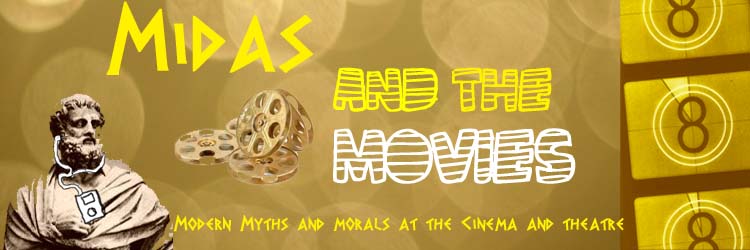The Seattle Repertory Theatre 2009 The first sound in Michael Hollinger’s play, Opus, is the sound of strings tuning—a preparatory, evocative sound, a sound that readies an audience for a relaxing evening at the orchestra. And part of that is true. Opus is a musical work indeed. The set includes mere music stands, chairs, and wood backdrops embossed with notation. The play takes poetic interludes for its characters to rhapsodize about music together in separate spotlights, speaking a monologue in four parts as if it were a piece they were playing. The play is full of these lyrical moments, where realism is suspended for an underscore.
But that’s only part of it. The lyrical gives way to the colloquial. At the end of a beautiful piece of music, we see the quartet explode in quarrels and nitpicking that an audience never gets to see during their night at the philharmonic. It’s an interesting take, and one that will resonate with any artist. That painting, that dance routine, that scene may seem moving and effortless. But the audience doesn’t see the dark underbelly, the hours of frustration and ugliness that go into creating something lasting and beautiful. I commend Hollinger for taking on such an intriguing and untapped subject for his play.
The play’s protagonist is not any one character, but instead it is a string quartet. The author asks us to root for the group as a whole. Individual character conflicts serve the arc of the quartet. They have recently lost their most brilliant (but unstable) member, and the story begins as they replace him with a pragmatic violist named Grace. Grace, as new to the group as we are, serves as our guide to the delicate social dynamics unique to a creative community.
The “quartet as protagonist” ploy might have come off better if the group was more cohesive. The chemistry took a while to emerge, as if the actors were warming up like they would with an instrument. Especially perplexing was Todd Jefferson Moore’s portrayal of the fired violist, whose presence hangs over the play like a ghost. It seems as if he never found the right tone for his mentally ill character, unconvincing in his histrionics. Notable was Allen Fitzpatrick, who was able to infuse energy and believability into the over-the-top, antagonistic Elliot. Throughout the play, I found myself feeling like an outsider, peeping in through a window; it was far into the performance before I began to feel any personal attachment to the lives before me.
Awkward silences, broken relationships, bickering, small personal tragedies. These are the language that Opus speaks in. Don’t go if you’re looking to get caught up in a great human drama. It’s there, but that’s not what the show is about. It’s about music. It’s about how messy, petty humans can come together to make something great. Perhaps most telling is a scene where the quartet finally gets a piece of the success they have been looking for. They come out of a performance, glowing with the high of accomplishment and applause. They laugh, giddily. There is a pause, a stop for breath. Their leader says, “Another day.” They reply, “Yes. Another day.” Opus is all about the pitfalls along the way to making art: the boredom, the frustration, the questioning of why you started making it in the first place. All they want to do “create an opus: something worthy of posterity.” So what do you do when you get there? Was it worth it? Ultimately, the questions posed in the play are not just questions of “Why art?”—it is a question of “Why life?” Why do we put ourselves through so much to accomplish something, when in the end it is just “another day”? Opus offers few answers, but it asks the questions in a language we can understand. Like a piece of music, there are refrains that haunt the mind for days after the final notes.

No comments:
Post a Comment